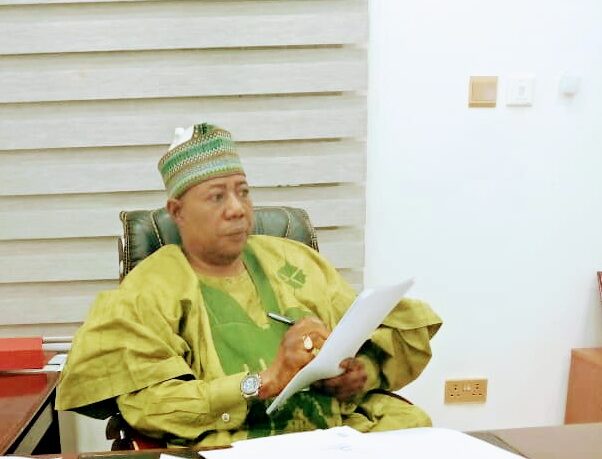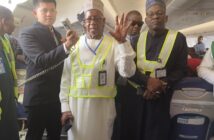The United States government’s recent travel advisory cautioning its citizens against lodging in major hotels in Nigeria has stirred a storm of indignation and resentment across the nation. This seemingly innocuous warning, far from being a mere security measure, has cast a long shadow over the longstanding diplomatic ties between the two countries. The angst is that it may jeopardize Nigeria’s efforts to attract foreign investment and undermine its reputation on the international stage.
At the heart of the controversy lies the advisory’s implicit implication that Nigeria is incapable of safeguarding the safety of American citizens. This assumption not only undermines the trust and cooperation that have characterised US-Nigeria relations for decades but also disregards the significant strides Nigeria has made in addressing security challenges.
The Tinubu administration, since taking office in May 2023, has demonstrated a resolute commitment to curbing insecurity, implementing a range of measures to strengthen the country’s security apparatus and combat criminal activities. From increased funding for the security sector to enhanced coordination among security agencies, the government has taken proactive steps to address security concerns.
Moreover, the advisory’s hypocrisy is evident. The United States, often touted as a beacon of security and stability, is far from immune to its own share of security threats. Mass shootings, gun violence, and other incidents of violence plague American society. Yet, Nigeria has never issued travel advisories warning its citizens against visiting the US due to these risks.
The US government’s decision to issue this advisory appears to be a hasty and ill-conceived move, overlooking Nigeria’s efforts and exacerbating tensions between the two nations. Instead of fostering a climate of distrust, the US government should engage in constructive dialogue with Nigerian authorities to address security concerns in a collaborative and mutually respectful manner.
Nigeria’s efforts to attract foreign direct investment (FDI) have been severely undermined by this advisory. Potential investors, already wary of security concerns, are further discouraged by the US government’s warning, casting Nigeria in a negative light and hindering its economic development aspirations.
The advisory’s impact extends beyond security concerns and economic implications. It has tarnished Nigeria’s reputation, painting an inaccurate picture of a nation plagued by insecurity and incapable of protecting its citizens and visitors. This damage to Nigeria’s image will take time and sustained effort to repair.
The US approach is akin to the admonition of the holy books which urges us: “You hypocrite, first take the plank out of your own eye, and then you will see clearly to remove the speck from your brother’s eye.”
I say this because even the deaf can hear and blind can see the insecurity in the US. Insecurity in the US is a complex and multifaceted issue that encompasses a wide range of threats, including crime, violence, terrorism, and natural disasters. These threats can have a significant impact on the safety and well-being of Americans, as well as on the country’s economy and national security.
As an intelligence expert who has been following events in that country for years, crime is a major concern in the United States. According to the FBI’s Uniform Crime Reporting (UCR) Programme, there were an estimated 1.2 million violent crimes and 7.5 million property crimes committed in the United States in 2021. These crimes include murder, rape, robbery, aggravated assault, burglary, larceny and motor vehicle theft.
Violence is a serious problem in the United States. According to the Centers for Disease Control and Prevention (CDC), homicide is the leading cause of death for young people aged 15-24 in the United States. In 2020, there were over 19,000 homicides in the United States, an increase of 30% from 2019.
America has been the target of numerous terrorist attacks, both domestically and internationally. In 2021, there were 72 terrorist incidents in the United States, according to the National Counterterrorism Center (NCTC). These incidents included bombings, shootings, and hostage-taking situations.
The insecurity in the US is so bad that the government has a number of programmes in place to address the concern. These programmes include law enforcement, homeland security, and emergency management. The government also works to address the root causes of insecurity such as poverty, inequality and lack of education.
What the foregoing implies is that insecurity in Nigeria is a child’s play compared to that in the US. But the moral question to ask is despite the grave security concerns in the US, has Nigeria ever issued an Advisory warning its citizens in America to avoid certain places? In other words, the US has fouled the rules of democratic engagement.
What Nigerians expected from the United State security advisory was s to brief the Nigerian intelligence community about looted funds being whisked away from Nigeria to foreign countries and how to recover the loot. As a country considered as a major ally, one would have expected that America would share intelligence with our National Security Adviser (NSA) on how to prosecute international oil thieves and other related crimes that could could be mutually beneficial to the two countries. But what we are sadly witnessing is michief taken to a diplomatic level.
As I conclude, let me reitrate the fact that one good turn deserves another. The travel advisory regarding major hotels in Nigeria represents a significant setback in the relationship between the two countries. It betrays trust, undermines Nigeria’s security efforts, jeopardises its economic prospects, and damages its reputation.
Instead of resorting to such measures, the US government should have engaged Nigeria in a constructive dialogue with authorities to address security concerns in a collaborative and mutually respectful manner. This is more so when the Renewed Hope government of President Tinubu has put everything in the works to end the menace.
– Ibrahim is director, Communications and Strategic Planning, of the Presidential Support Committee (PSC).



